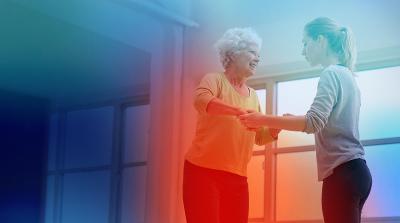About
The Department of Kinesiology and Community Health is an interdisciplinary unit dedicated to the study of health, rehabilitation, and human movement.
The advancement and dissemination of knowledge related to health, rehabilitation, and human movement are central to the Department’s mission. Faculty in the Department utilize a broad variety of approaches in the integrative study of health, rehabilitation, and human movement, including research themes such as lifespan physical activity, community health, rehabilitation counseling, disability, well-being and inclusion, physical culture and education, pedagogy, human factors, and human performance.
Program History
The Department of Kinesiology finds its roots in the earliest days of the university. Going back to 1874, instruction in calisthenics was offered for women and classes included lectures in health. In 1895, the Department of Physical Training for Men was established and the Department of Physical Culture forWomen was authorized by the Board of Trustees. The departments of Physical Education for Men and Physical Education for Women merged in 1972. The new Department of Physical Education became the Department of Kinesiology in 1987.
The Department of Community Health at the University of Illinois at Urbana-Champaign has been helping to promote health in Illinois, the U.S., and the world since 1957. In 1998, the Community Health Department merged with the Division of Rehabilitation Education. In November 2004, the UIUC Faculty Senate voted to support the merger of the Departments of Kinesiology and Community Health. The merger was endorsed and implemented by the Board of Trustees of the University in February 2005.
Curriculum Focuses
The Department of Kinesiology and Community Health is organized around five curricular groupings:
Bio-Behavioral Kinesiology:
Faculty in the Bio-Behavioral Kinesiology group examine the antecedents and consequences of involvement in physical activity and sport and the impact that physical activity and sport have upon individuals. This area includes Exercise and Sports Psychology, Biomechanics, Motor Control, and Kinesmetrics.
Cultural, Pedagogical, & Interpretive Studies:
Faculty in the CP&I group examine the interaction between physical activity and the individual from a variety of cultural, sociological, and pedagogical perspectives. Some faculty study the impact of movement on cultural and social relations, while others examine issues related to pedagogy and physical education.
Exercise Physiology:
Exercise physiology is the study of work output, energy transfer, and movement efficiency. Research in this area is conducted in order to better understand the consequences of exercise stress on body systems.
Health Disparity and Disability:
Faculty with specializations in health disparity examine a variety of dynamic interactions that impact the overall health of communities. Faculty in rehabilitation examine the impact of disability in the population and the emotional, environmental, vocational, and educational issues surrounding adjustment to disability.
Public Health:
Faculty in the public health group examine population-based approaches to public health. A cornerstone of the program is translating research into public health practice.
The department offers degree programs leading to the BS, MS, MPH and Ph.D. degrees.
In addition, the department also offers several programs preparing students for (1) Illinois State Certification in teaching physical education in grades K-12; (2) Coaching Endorsement; (3) Health Education Endorsement; and (4) Gerontology minor.
The Department also sponsors two service programs which include the Lifetime Fitness Program for adults 55 and older and the SportsFitness Program for children 7-12 years of age.

